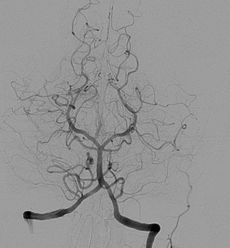Be patient, it takes time to come back from any sort of brain injury, or even to find the point of balance that becomes your ‘new normal’.
I fought like hell to get back to work after my haemorrhagic stroke. I couldn't sit at home, essentially feeling like I was under house arrest, prevented from contributing to the world and the environment I had been helping to to shape. I wanted to go back to work. I was bound and determined to demonstrate
that there was nothing significantly different about me, my memory or my cognitive
abilities. I fought to get permission to
walk back in the door after only seven months.
I started back on a phased, part time schedule, which included being given the opportunity to travel to
Florida for a conference. After much confusion about how to 'track' my time and negotiation with the insurance company, I was then put
back on ‘active’ status nine months after the incident. I think it may have been better if I had
waited out the full year. That is what
many of the doctors and therapists use as a rough guideline. Take the year! Don’t rush it.
I found that at the one year mark I could feel a profound
difference in my vision, my balance and most of my cognition and attention
span. It was almost like a switch was
thrown somewhere in the circuitry of my brain.
It isn't perfect yet. How much of it is simply my age, which some doctors seem to take great delight in teasing me with, and how much are the residual effects of the brain bleed? I don't know. And it is the not knowing that truly disturbs me.
I’ve discovered that emotionally I haven’t always been ready
to take my place at the table for the meetings that are an integral part of my job.
I've also discovered that cognitively I may not be up to the tasks I
really want to take on. It’s not that I
can’t do them, I just can’t do them as fast.
So what does the ‘emotional’ part mean? Well, to be fair, I've become very grumpy in
some circumstances. I react with ‘glib’
responses if I'm not functioning as quickly as I’d like. In fact, I've been downright rude, and
combative at times.
Sure, I'd like to find something to blame this on, and in truth there were extenuating circumstances with my return to
work that are handy for hanging responsibility on. While I was away, my peers had parcelled out parts of my job that they felt
comfortable doing, and then were extremely hesitant to give the pieces back
when I asked for them. I felt like I’d
lost ownership of the job, especially the parts that I felt most passionate
about. And even as this was happening,
or not happening as the case may be, we got a new boss whose first introductory statements included
‘reorganization’, ‘reclassification’ and he actually presented a laundry of
staff to the management group that he intended to have removed from the organization. To his credit, he showed concern for my health, encouraging me not to rush things. His concern for my well-being was genuine, I
believe. In my already defensive posture I interpreted much of what was presented as evidence of his kid-glove approach,
especially the parts where he left me alone while working closely with my peers
to hammer out a new strategy, were platitudes
of condescension.
On balance, when I look back at how I feel, I spend way too
much of my time being angry. It is
totally possible that this is a side effect from the stroke and part of my
recovery, but it is also possible that my brain chemistry has changed. It’s gotten to the point that I'm not sure
that I like the person I’m becoming. I'm
an unpleasant, combative old man too much of the time. If I'm engaged with what I’m doing, and
success comes easy, or the conversation fits with a part of my world view, then
everything is fine. Any sort of
deviation and my mind starts locking in on certain thoughts and phrases that ricochet
around the vacant the corners of my mind, spilling out into the real world at
inconvenient and inappropriate times.
Calm acceptance of circumstances beyond my control has become a struggle
that I'm not used to. I have to
consciously throttle thoughts and reactions.
I have been experiencing deep sadness, skirted the edges of
anxiety, and generally become quite concerned about my mental health. It reached a point where I went to my doctor
to get some medication to help even out the roller coaster ride. He prescribed something, but after reading
about the drug, I became fearful of starting them. In my lopsided view, I need quick fixes, not
a protracted course of treatment that starts with a full two weeks of taking a
drug before any effect would be seen or felt, and then would require a month or
more to come off the drug safely.
I made a decision; I'm going to do this on my own.
We’re kick starting an exercise regimen, we’re watching our
blood sugar closely, ensuring that we’re eating proteins on a fairly regular
basis, and we’re cutting out the drinking as much as is practical. No more scotch for a while, just to see if we
can identify a difference.


